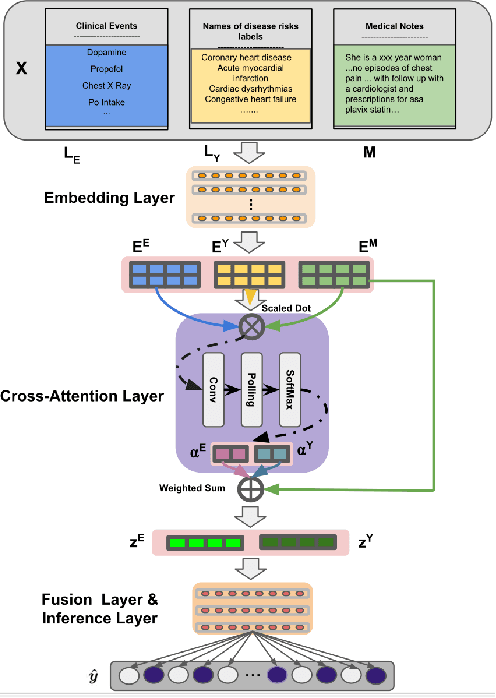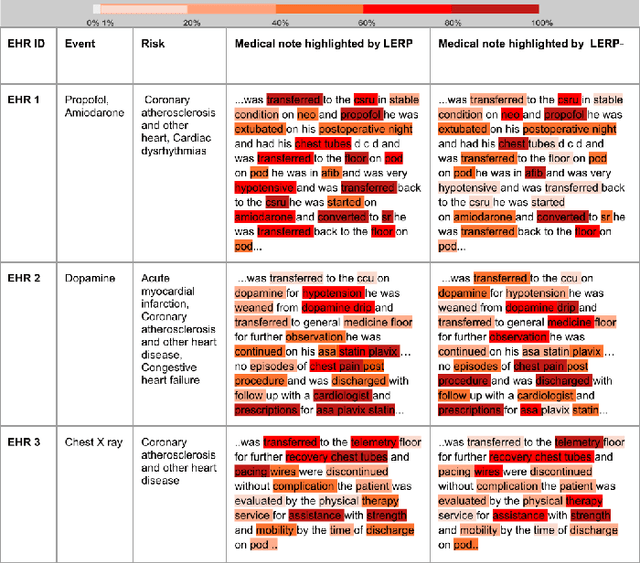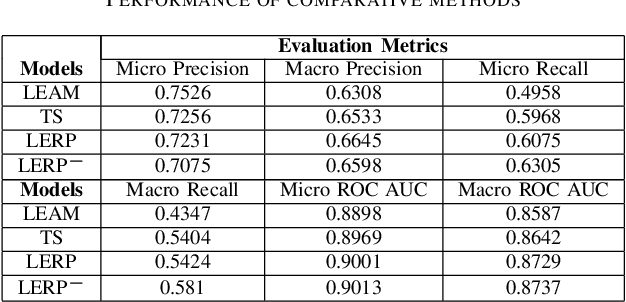Label-dependent and event-guided interpretable disease risk prediction using EHRs
Paper and Code
Jan 18, 2022


Electronic health records (EHRs) contain patients' heterogeneous data that are collected from medical providers involved in the patient's care, including medical notes, clinical events, laboratory test results, symptoms, and diagnoses. In the field of modern healthcare, predicting whether patients would experience any risks based on their EHRs has emerged as a promising research area, in which artificial intelligence (AI) plays a key role. To make AI models practically applicable, it is required that the prediction results should be both accurate and interpretable. To achieve this goal, this paper proposed a label-dependent and event-guided risk prediction model (LERP) to predict the presence of multiple disease risks by mainly extracting information from unstructured medical notes. Our model is featured in the following aspects. First, we adopt a label-dependent mechanism that gives greater attention to words from medical notes that are semantically similar to the names of risk labels. Secondly, as the clinical events (e.g., treatments and drugs) can also indicate the health status of patients, our model utilizes the information from events and uses them to generate an event-guided representation of medical notes. Thirdly, both label-dependent and event-guided representations are integrated to make a robust prediction, in which the interpretability is enabled by the attention weights over words from medical notes. To demonstrate the applicability of the proposed method, we apply it to the MIMIC-III dataset, which contains real-world EHRs collected from hospitals. Our method is evaluated in both quantitative and qualitative ways.
 Add to Chrome
Add to Chrome Add to Firefox
Add to Firefox Add to Edge
Add to Edge